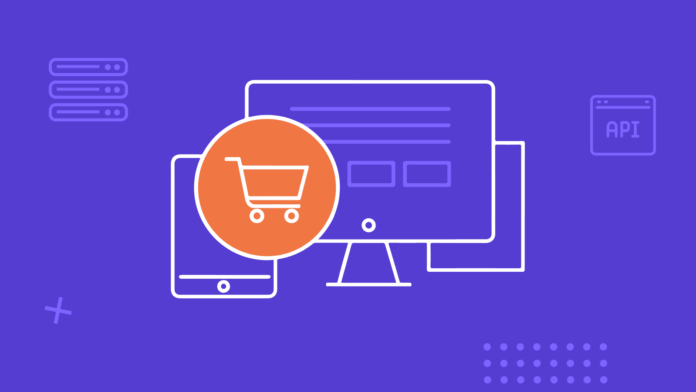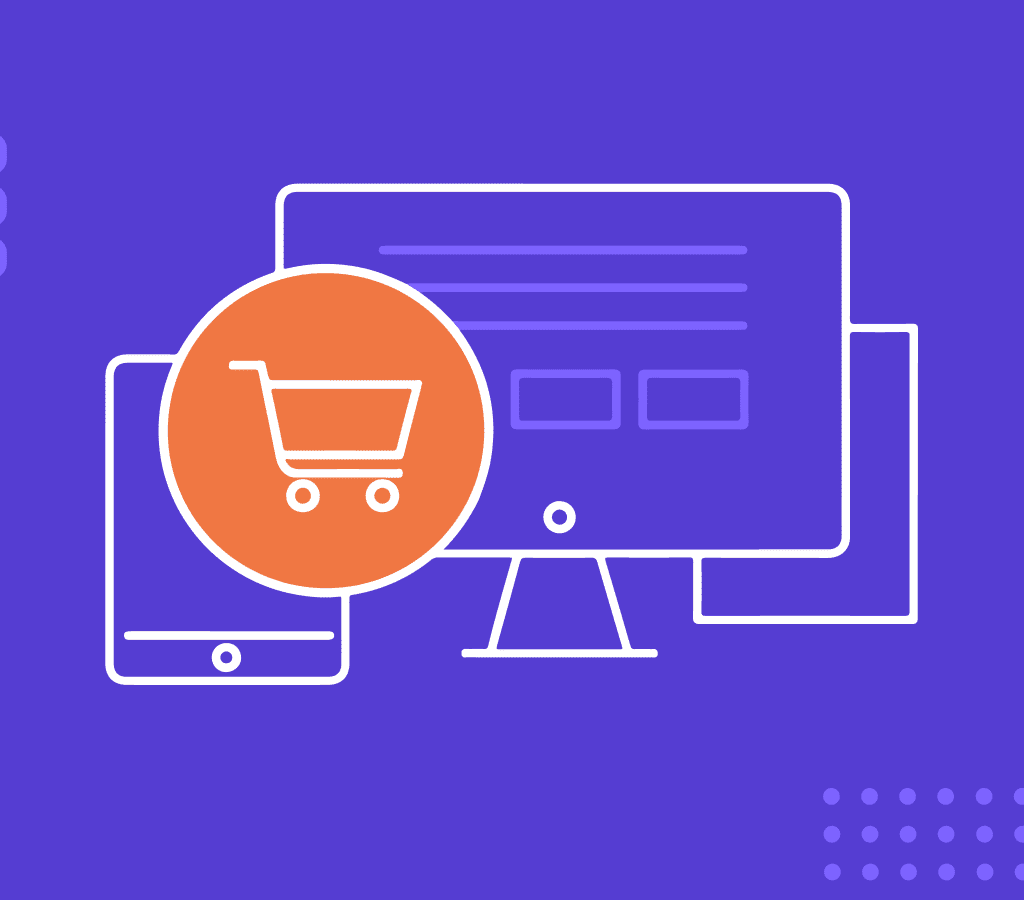In the past, eCommerce developers were limited by the technology they could use. However, today’s advances in eCommerce development have allowed for more innovative solutions that can be created using headless frameworks and Linux servers. This trend is transforming how eCommerce platforms are built, allowing for greater flexibility and scalability.
What is eCommerce Headless?
The architecture known as “headless commerce” is one in which the frontend layers are separated from the eCommerce backend functions. Simply said, to make the eCommerce platform “headless,” the headless commerce approach will split the storefront layer from the platform itself.
The headless commerce development provides you with an unmatched amount of freedom to design a distinctive and customized consumer experience on the front end by allowing two different layers to operate independently and interact via APIs. All of the eCommerce backend functionality is still there and working in the meantime.
Headless eCommerce Platforms: Key Features
Headless e-commerce platforms decouple the front-end user interface from the back-end e-commerce functionality. This allows businesses to create highly customized user experiences and integrate them with other systems such as CMS, CRM, or POS. Here are some key features of headless e-commerce platforms:
API-Driven Architecture
Headless e-commerce platforms are built with API-first architecture, which allows businesses to integrate their e-commerce functionality with other systems and platforms seamlessly.
Customizable Front-End
Decoupling the front end from the back end allows businesses to create highly customized user experiences that align with their brand and meet their specific needs.
Flexibility
Headless e-commerce platforms are highly flexible and adaptable to changing business needs. This is because they allow businesses to integrate with other systems and platforms and add or remove features and functionalities as needed.
Multi-Channel Selling
Headless e-commerce platforms make it easy to sell across multiple channels, including websites, mobile apps, marketplaces, social media platforms, and more.
Personalization
Headless e-commerce platforms enable businesses to provide highly personalized experiences to their customers based on their browsing and purchasing behavior, preferences, and other data.
Scalability
Headless e-commerce platforms are highly scalable and can support businesses of all sizes, from small startups to enterprise-level organizations.
Security
Headless e-commerce platforms provide a secure environment for online transactions and customer data storage, ensuring the safety of both businesses and customers.
Streamlining Operations with Linux-Based eCommerce Analytics
Linux is a powerful operating system with many uses in the business world. It’s used to power websites and servers, as well as being installed on most mobile devices. Linux has been proven to be secure, reliable, cost-effective, and versatile enough to handle any situation you can throw at it.
The benefits of using Linux include:
Security – The open-source nature of the OS means that there are thousands of developers working together to keep each other safe from hackers by finding vulnerabilities before malicious actors exploit them on the internet
Reliability – Because so many people use this operating system there’s a huge pool of developers who know how it works inside out (and outside in!) which means fewer bugs or issues causing downtime for your site/server etc…
The Linux operating system is a powerful tool that enables developers to create secure and scalable eCommerce applications. It’s open source, which means it’s free. You can also configure it to meet your needs. Many of the world’s largest companies use Linux as the foundation for their eCommerce operations because of its flexibility, scalability, and security features.
Your business can benefit from the synergy of Linux and modern eCommerce development. It includes:
Economically efficient – which means you can use Linux to build a robust e-commerce platform without spending too much money on development and maintenance.
Security – Linux uses multiple layers of security protection, including firewalls and antivirus software. This helps keep hackers out while ensuring your data stays safe at all times.
Reliability – Because Linux isn’t dependent on any one company or person (like Windows), there’s less chance it will go down unexpectedly, and if something does happen, you can fix it yourself!






